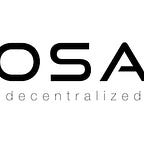China remembers the horrific disaster caused by the low level of food safety. “The Сhinese Milk Scandal,” occuring in 2008, raised the issues of insufficient control over food production. Due to the producers’ low sense of social responsibility, the world heard about the mass poisoning of children, including infants, after consuming food and powdered formula. As it turned out, Chinese manufacturers had added melamine to their products to increase the measured protein concentration without thinking it would become hazardous to consumers’ health. The total number of victims who suffered from the poor-quality milk products was about 300,000, and 53,000 were Chinese. Thousand of desperate parents bent over their children in hospitals hoping for a miracle. Despite all the prayers and hopes, the death of six children and resuscitation of 100 casualties became inevitable. This abysmal situation should have forced the country’s highest bodies to think about the necessity of taking serious remedial measures in the production area, but it didn’t.
600 million people, almost one in ten people in the world, fall ill after eating contaminated food, and 420,000 people die every year from food poisoning, resulting in a loss of 33 million years of healthy life (in terms of disability-adjusted life years). Forty percent of foodborne illness victims are children under the age of five, making up 125,000 deaths per year.
In these statistics, China plays the leading role. That’s where blockchain technology has no equal and can be deservedly called the best tool for solving the issue of China food safety.
Blockchain Solutions For The Food Industry
Despite blockchain technology being primarily associated with financial services, it’s increasingly applied to other industries. The food supply chain is no exception.
Blockchain opens opportunities for efficient and transparent tracking of supply chains when managing goods and services. In practice, it allows any interested person (for example, a consumer of manufactured products or a civil servant) to keep track of all information about a product as documented, namely:
- date of production
- product composition
- the presence of allergens and other unacceptable components
- list of suppliers of raw materials
The digital recording of characteristics of goods ensures a constant, unchanging fixation of each ingredient during the entire process of food production from the purchase of raw materials to the sale to the final consumer.
This transparency gives market participants, in particular, consumers, information about the origin of a product, its processing methods, product contents and most importantly, the ability to track its full movement through the supply chain, which completely meets the ISO 9001 quality management system requirement of creating a traceability system for food production.
That’s how blockchain solutions can help food companies more easily detect problems and find their source, improving consumer safety and reducing financial losses.
The Best Practices Of Integrating Blockchain
Last year, IBM announced a collaboration with several food companies, including grocers (Walmart, Kroger, and Wegmans), food service suppliers (McLane Company and Golden State Foods), and food companies (Dole, Driscoll’s, McCormick and Co, Nestlé, Tyson Foods, and Unilever). IBM has built Hyperledger Fabric, a blockchain “umbrella” project of open-source blockchain (it can be freely modified and shared) and related technologies housed under the Linux Foundation’s Hyperledger group.
Truly great achievements in a sphere of food production and quality control through blockchain solutions were made not only by the leading alliance headed by IBM but also by the early-stage startups. Here’s a brief overlook of some innovative projects focusing on integrating blockchain in supply chains for increasing food safety and, generally, transforming the way we buy groceries:
- Lifinity is a reliable distributed business platform based on blockchain, IoT, and Big Data technology with a focus on the transparent overview of supply chain networks. It provides reliable data, transparent information, efficient cooperation and interconnected networks to cope with practical business pain points and development demand of corporate users.
- OSA DC Decentralized (OSA DC) is the world’s first blockchain-based decentralized platform with real-time solutions for retailers, manufacturers, and consumers. Systemic inefficiency of processes costs the retail sector about $500 billion a year. OSA DC coped with this by uniting previously unconnected parties into a single ecosystem, thus, solving three main problems of modern retail: tracking inventory levels, tracking consumer confidence, and minimizing waste from goods in the supply chain.
- Ivy Food Tech is a company running its own blockchain platform designed to scale the information exchange network for food supply chains to empower anyone to share information about food. Their main goal is to reduce the use of paper materials, manual data processing and eliminate a loss of information in numerous docs through unique tools simplifying data management and automating documentation.
The Changes In The Chinese Food Market Are Inevitable
The successful provision of food safety is a guarantee of stability for society and the progressive development of the whole country. At the same time, it’s one of the main manifestations of the state’s respect for its own population. It’s clear the inability to ensure food safety violates a country’s image and closes the way for the export of domestic food, the income from which makes a tangible contribution to the total economy. China feels the need to bring crucial changes to its food market acutely, and considering the latest tendencies, these innovations should obviously be based on blockchain. In case of successful technology integration, it is possible to reduce the costs associated with the search for and removal of unsafe food and to significantly reduce the number of deaths and illnesses due to toxic products.
